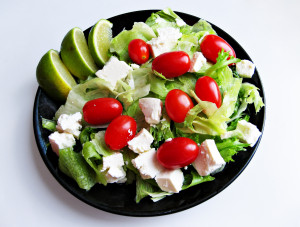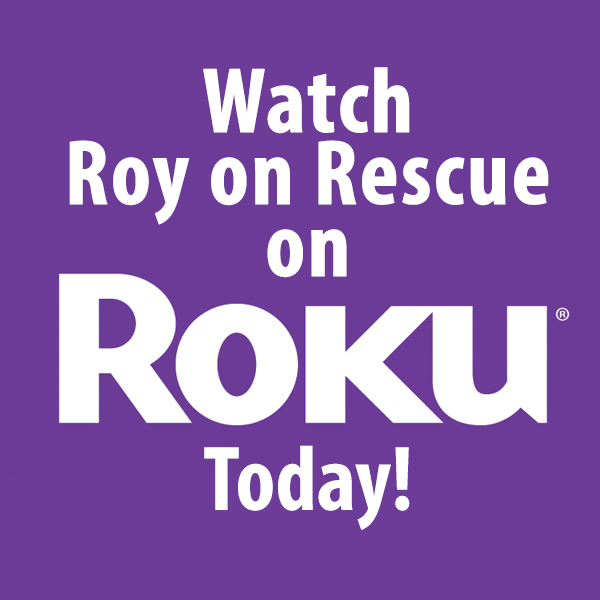It can be very scary to have a medical emergency but even more scary if you’re all alone with no one to help. In this video, I explain what to do if you have chest pain or you think you’re having a heart attack and your alone.
If you’ve ever wondered what to do when you’re experiencing a medical or life threatening emergency and you find yourself alone, you may get the answer you’re looking for right here, on this episode of RoyOnRescue!
Tag Archives: Heart attack
And For My Next Heart Attack, I’ll Take An Extra Dose Of Estrogen Please!
 An article found in this news provider wrote that higher levels of the hormone estrogen are associated with an increased risk of sudden cardiac death in men and women, a new study suggests. Could there be something to this or should we just blow it off as another scare tactic? Well, when we consider all of the different ways humans get exposed to estrogen in the form of xenoestrogens(pronounced: zeno-estrogen and are a type of xenohormone that imitates estrogen. They can be either synthetic or natural chemical compounds.), it becomes quite clear that we have a problem on our hands and the side effects are coming to roost.
An article found in this news provider wrote that higher levels of the hormone estrogen are associated with an increased risk of sudden cardiac death in men and women, a new study suggests. Could there be something to this or should we just blow it off as another scare tactic? Well, when we consider all of the different ways humans get exposed to estrogen in the form of xenoestrogens(pronounced: zeno-estrogen and are a type of xenohormone that imitates estrogen. They can be either synthetic or natural chemical compounds.), it becomes quite clear that we have a problem on our hands and the side effects are coming to roost.
How do we become exposed to these synthetic or foreign hormones? Well sit back and take a look at this pretty comprehensive list provided by a site dedicated to endocrinology.
* Commercially-raised, non-organic meats such as beef, chicken, and pork
* Commercial dairy products including milk, butter, cheese, and ice cream – Use only organic products that do not contain bovine growth hormone
* Unfiltered water, including water you bathe in – Use reverse-osmosis filtered water such as Dazani or get your own filter
* Laundry detergent – Use white vinegar, baking soda, or tri-sodium phosphate (TSP)… According to some experts, avoid even the Seventh Generation and Eco brands
* Dryer sheets and fabric softeners – Use white vinegar is a marvelous natural fabric softener, no smell after it dries
* Avoid Primpro, DES, Premarin, Cimetidine (Tagamet), Marijuana, and Birth Control Pills.
* Hormone replacement therapy (HRT)
* Progesterone creams made with paraben preservatives
* Soy
* Ground flaxseed – If you’re looking for the Omega-3 effect, use fish oil instead
* No sunflower oil, no safflower oil, no cottonseed oil, no canola oil – Use olive oil or grapeseed oil
* Avoid Tea tree oil (melaleuca) – I know, I love tea tree oil, this one is tough
* No lavendar oil
* Avoid coffee and caffeine
* Sage and rosemary
* Shampoos, lotions, soaps, cosmetics that contain paraben or phenoxyethanol – Almost all contain them, you have to look far and wide. Be diligent, you’re getting hundreds of times more exposure through your skin than through your diet. So far, I’ve found Kiss My Face brands to be okay.
* Shampoos that purposely include estrogen (these are shampoos that cater to the African-American market)
* Avoid reheating foods in plastic or styrofoam containers
* Avoid drinking out of plastic cups and containers
* Air fresheners that contain pthalates
* Avoid naturally occurring plant estrogens:
* Coffee
* Clover, red clover tea, alfalfa sprouts
* Sunflower seeds
* Queen Anne’s lace (wild carrot)
* Pomegranate – The Greeks used this plant as a contraceptive!
* Dates
* Fennel
* Licorice, red clover, yucca, hops (beer) and motherwort
* Bloodroot, ocotillo, mandrake, oregano, damiana, pennyroyal, verbena, nutmeg, tumeric, yucca, thyme, calamus rt., red clover, goldenseal, licorice, mistletoe, cumin, fennel, chamomile, cloves
* 4-Methylbenzylidene camphor (4-MBC) (sunscreen lotions)
* butylated hydroxyanisole / BHA (food preservative)
* atrazine (weedkiller)
* bisphenol A (monomer for polycarbonate plastic and epoxy resin; antioxidant in plasticizers)
* dieldrin (insecticide)
* DDT (insecticide)
* endosulfan (insecticide)
* erythrosine / FD&C Red No. 3
* heptachlor (insecticide)
* lindane / hexachlorocyclohexane (insecticide)
* methoxychlor (insecticide)
* nonylphenol and derivatives (industrial surfactants; emulsifiers for emulsion polymerization; laboratory detergents; pesticides)
* polychlorinated biphenyls / PCBs (in electrical oils, lubricants, adhesives, paints)
* parabens (lotions)
* phenosulfothiazine (a red dye)
* phthalates (plasticizers)
o DEHP (plasticizer for PVC)
(http://endojourney.wordpress.com/2009/07/31/a-list-of-xenoestrogens/)
When we think about some of the complications of high estrogen levels in either gender, including increased risk of hormone sensitive cancers, increased cardiac inflammation(http://onlinelibrary.wiley.com/doi/10.1002/iub.48/pdf), blood clot risk increase, and men have the same with the addition of impotence and infertility.
I’m glad to see there are more studies confirming that we have an estrogen problem in society. And along with this, we are going to see many more complications of disproportionate sex hormones and their effects. etc.http://endojourney.wordpress.com/2009/07/31/a-list-of-xenoestrogens/
It looks like organic and natural living isn’t just for enthusiasts anymore. It’s something we should all be more aware of and do our part to begin living a healthier and happier life.
I’m Going To Eat This If It’s The Last Thing I Do!
Ever think to yourself, “I’m just a bacon cheeseburger away from a heart attack?” Well you might just be. Newer research is showing that high saturated fat and unhealthy foods effect our overall health more than we realize. In fact, those who have cardio-vascular disease could determine if they are going to have a heart attack today or tomorrow simply based on what they decide to have for supper!
Author Bonnie Liebman wrote an article where it said; New research suggests that if your arteries are partially clogged with plaques–and if one of those plaques happens to rupture several hours later, that fatty meal could be your last.
“Hours after a fat-rich meal, an individual is at a higher risk of a fatal heart attack than at other times,” says researcher George Miller of the Medical College of St. Bartholomew’s Hospital in London.
Remember, the signs of heart related chest pain can be similar to pains you’ve felt in the past. But if you are experiencing pain in your chest, radiating up into your neck or down one or both arms, shortness of breath, nausea, dizziness, weakness and sweating, you may be having a life threatening heart attack. Don’t drive yourself into the hospital. Call 911 or have someone call 911, sit in a position of comfort, try and relax and let the paramedics treat you while you’re on your way to the hospital. Paramedics can give medications such as; aspirin if you haven’t already taken one before they arrive, nitroglycerin, morphine, and in some regions of the world maybe even blood clot dissolving medications. Either way, the ambulance knows the secret in getting you seen very fast and not having to stop at the front desk. In fact, in many cases the paramedics bring heart attack patients who have already been confirmed with certain 12 lead ECG results right into the Cardiac Cath Lab. This time savings could mean the difference between life and death. Time is heart muscle when it’s starving of oxygen due to a blocked artery.
Please don’t try to dismiss it as heart burn or gas. Chest pain should always be investigated and if it’s not something that you can 100% say is a pulled muscle, you should get evaluated by medical professionals.
The heart is a wonderful muscle and it works every second of every minute of our whole lives. Let’s not kill ourselves one bite at a time. In fact as I write this blog, I’ve decided to do something a little special to try and get healthy myself.
Cheers,
Roy Shaw, EMT-Paramedic
RoyOnRescue.com
Tweet me your comments: @royonrescue
For Full Article mentioned in blog go to:
http://findarticles.com/p/articles/mi_m0813/is_n4_v21/ai_15224643/
P.S. I’m sharing a great video by the British Heart Foundation. My good friend and business partner introduced this to me. Please feel free to send the video to anyone you think might be at risk for a heart attack and is too stubborn to listen to the symptoms.
Person Dying and You Can Help, So What’s Stopping You?
An estimated 294,851 emergency medical services-treated out-of-hospital cardiac arrests occur in the United States each year.(http://www.americanheart.org/presenter.jhtml?identifier=4741)
And only 10% of people do something to help. What stops people from providing life saving techniques during a tragedy? In this video podcast Roy Shaw, Paramedic and BLS/ACLS/PALS instructor gets to the bottom of why people don’t get involved and what can be done increase the survival rate from cardiac arrest, regardless of what causes it.
iRescueRadio 003: Television and Health, High School Basketball Player Heart Attack, Neighborhood Rescue
This week we discuss how tv has a negative health and social effects on children; we learn about the condition of a High School basketball player that collapsed with a heart attack in the middle of a game, and the outcome of that; and a CPR rescue story!
Also discussed this week: how technology may be altering how brains work, and the FDA’s decision to discount melamine’s danger in infant formula.

